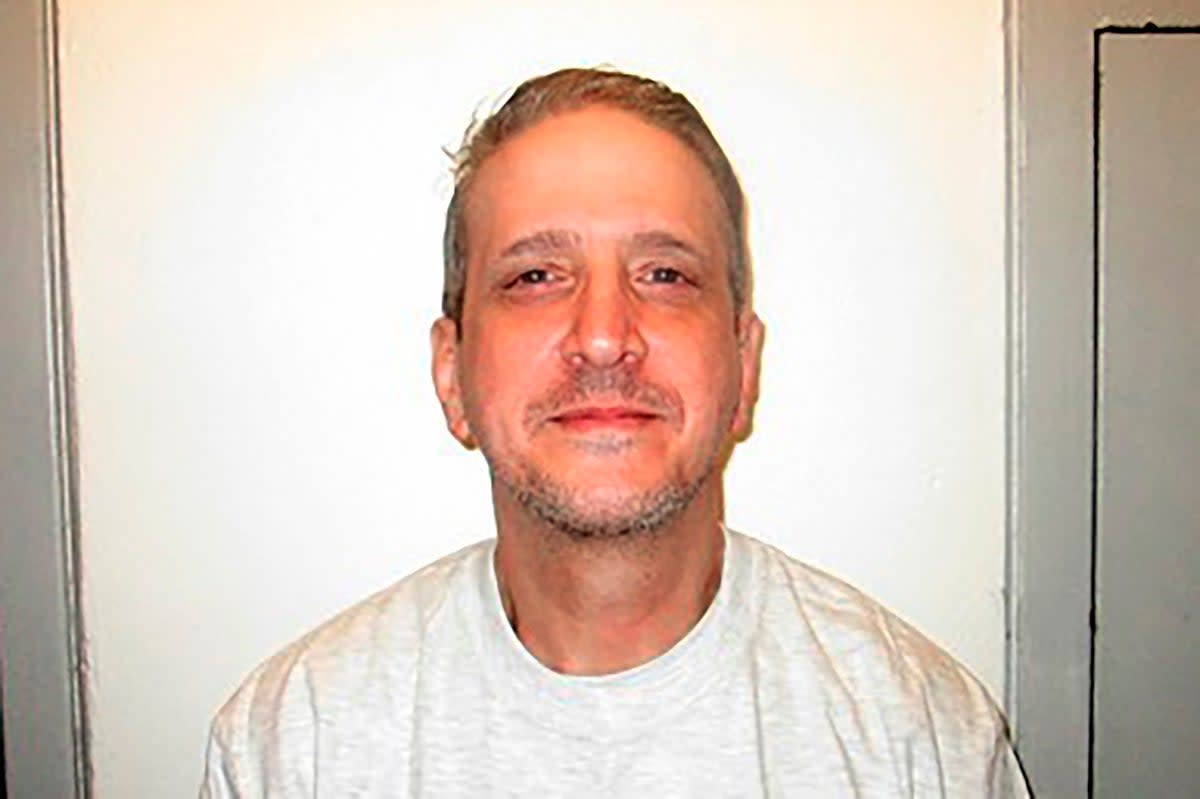Oklahoma denies death row inmate Richard Glossip’s appeal for new trial, despite backing from attorney general
An Oklahoma court on Thursday denied a request for a new trial from Richard Glossip, a death row inmate who has long maintained his innocence in the 1997 murder-for-hire of his former boss at an Oklahoma City motel.
The Oklahoma Court of Criminal Appeals rejected Glossip’s fifth application for post-conviction relief in the case, leaving him few options beyond a US Supreme Court appeal or receiving clemency from the governor to avoid his execution, which is scheduled for May 18.
“This case has been thoroughly investigated and reviewed in numerous appeals,” the court wrote in its ruling.
“His new application provides no additional information which would cause this Court to vacate his conviction or sentence.”
Earlier this month, Oklahoma Attorney Gentner Drummond petitioned the court for a new trial for Glossip, arguing the state’s key witness, a maintenance man named Justin Sneed, lied about his mental health and drug use.
“This is not to say I believe (Glossip) is innocent,” the official said in a statement at the time. “Considering everything I know about this case, I do not believe that justice is served by executing a man based on the testimony of a compromised witness.”
Glossip’s attorneys condemned the ruling.
“Since the State now agrees that the only witness to allege that Mr Glossip was involved in this crime cannot be believed, it is unconscionable for the court to attempt to force the State to move forward with his execution,” wrote Don Knight in a statement to The Independent. “We cannot permit this longstanding injustice to go unchallenged and will be filing for review of this manifestly unjust ruling in the United States Supreme Court.”
Numerous state officials, including the vast majority of Oklahoma’s largely Republican legislature, believe Glossip is innocent.
Allies point to issues in the case like the lack of physical or witness evidence tying Glossip to Van Treese’s brutal murder.
Jurors also never knew of the police’s aggressive and arguably coercive interrogation of Sneed, who fellow inmates said later bragged about committing the crime of his own volition, not, as police argue, at the behest of Glossip.
Sneed, the primary source of evidence in the state’s case, has appeared to ponder changing his conviction at various points, writing to his lawyers in 2003, “Parts of me are curious that if I chose to do this again, do I have the choice of re-canting my testimony at any time during my life, or anything like that.”

Last summer, an outside investigation – requested by state lawmakers – from law firm Reed Smith, with 30 attorneys working through 12,000 documents, found heaps of new information about the case, raising serious questions about whether Oklahoma was about to execute an innocent man.
“Our conclusion is that no reasonable juror, hearing the complete record, and the uncovered facts ... would have convicted Richard Glossip of capital murder,” Reed Smith attorney Stan Perry said in June.
Glossip’s execution has been postponed multiple times, including an instance in 2015 when state officials were about to use the incorrect cocktail of lethal injection drugs.
The mixup was part of a string of errors that prompted the state to put executions on hold for nearly seven years.
The Independent and the nonprofit Responsible Business Initiative for Justice (RBIJ) have launched a joint campaign calling for an end to the death penalty in the US. The RBIJ has attracted more than 150 well-known signatories to their Business Leaders Declaration Against the Death Penalty - with The Independent as the latest on the list. We join high-profile executives like Ariana Huffington, Facebook’s Sheryl Sandberg, and Virgin Group founder Sir Richard Branson as part of this initiative and are making a pledge to highlight the injustices of the death penalty in our coverage.
